Abstract
This paper continues the debate between myself and Peter Singer et al started in the Journal of Medical Ethics volume 21, no 3 about the ethical respectability of the use of QALYs in health care allocation. It discusses the question of what, in the way of health care provision, would be chosen by rational egoists behind a Rawlsian "veil of ignorance", and takes forward the vexed question of what is to count as "doing good" and hence as "doing the most good" in health care. Most importantly, this paper argues that it would be unfair to discriminate against people because they have been disadvantaged by their genetic condition. It notes that McKie et al in their reply to my first contribution to this debate continue to fail to distinguish between chance and probability and it is argued that this failure causes them to miss the whole point of the argument.
Full text
PDF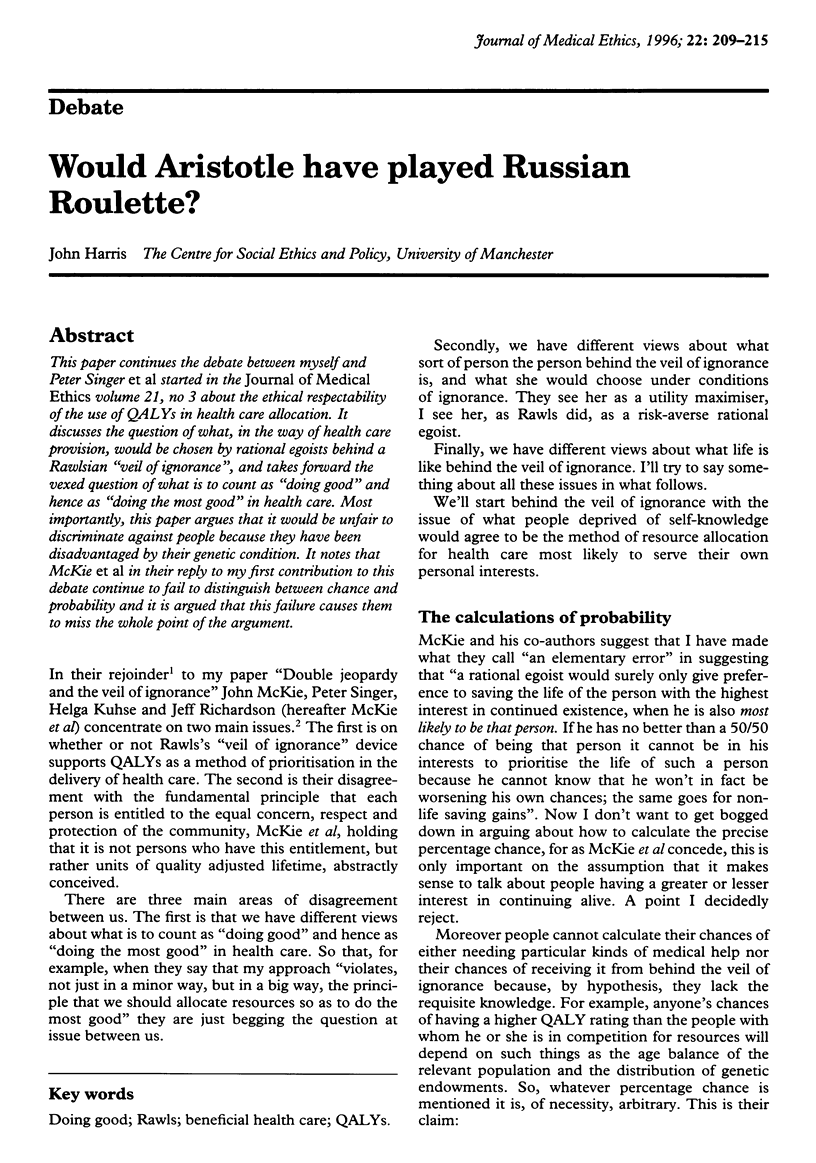
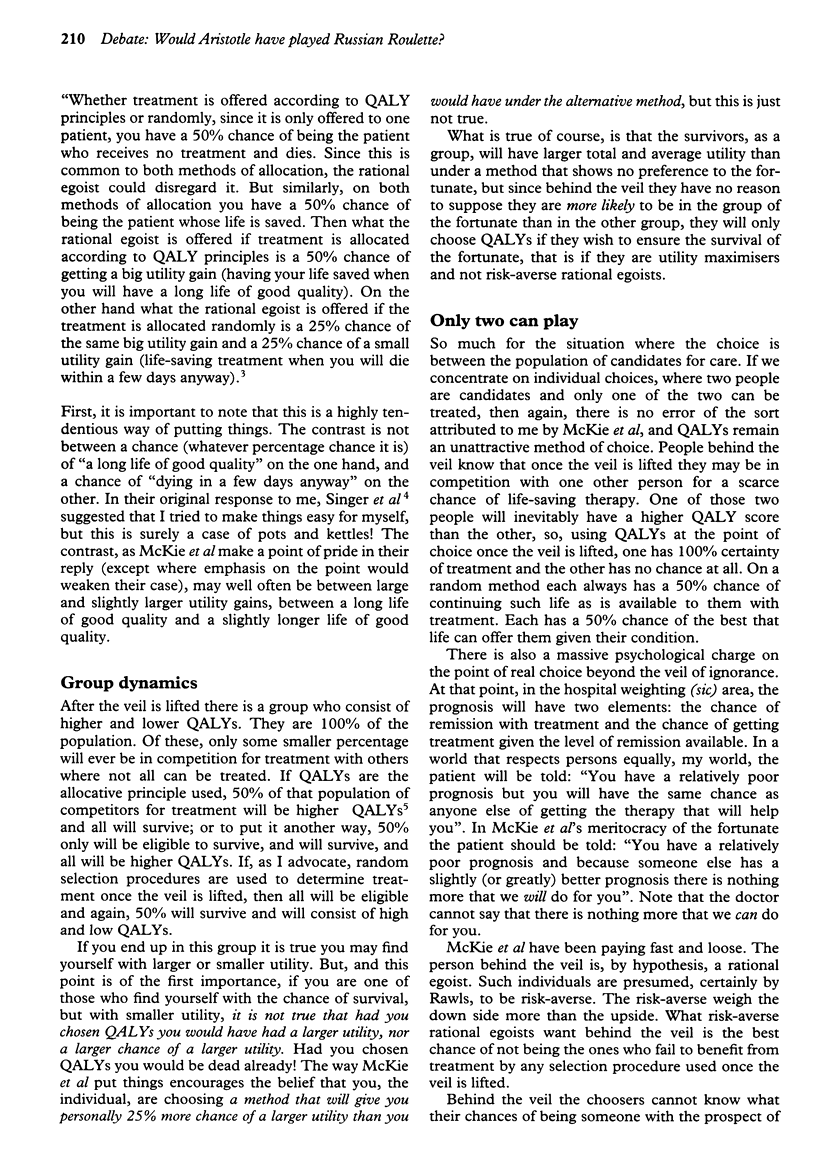
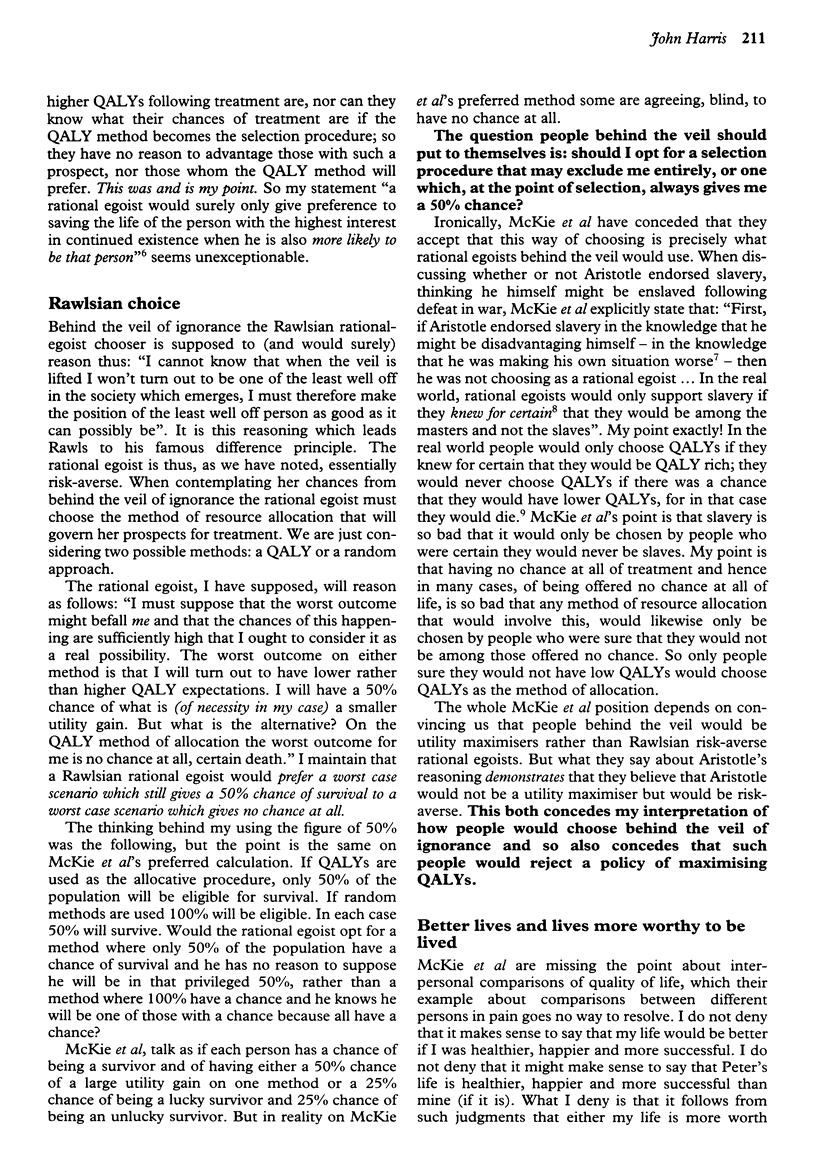
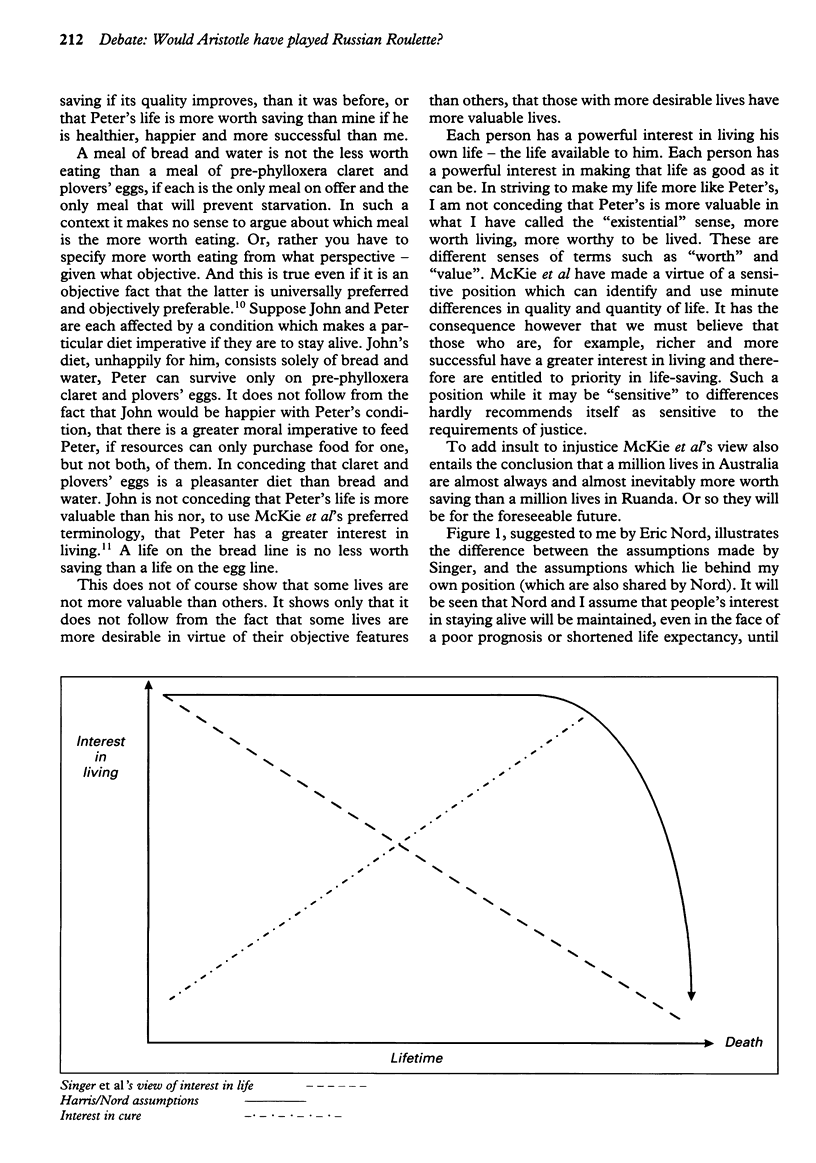
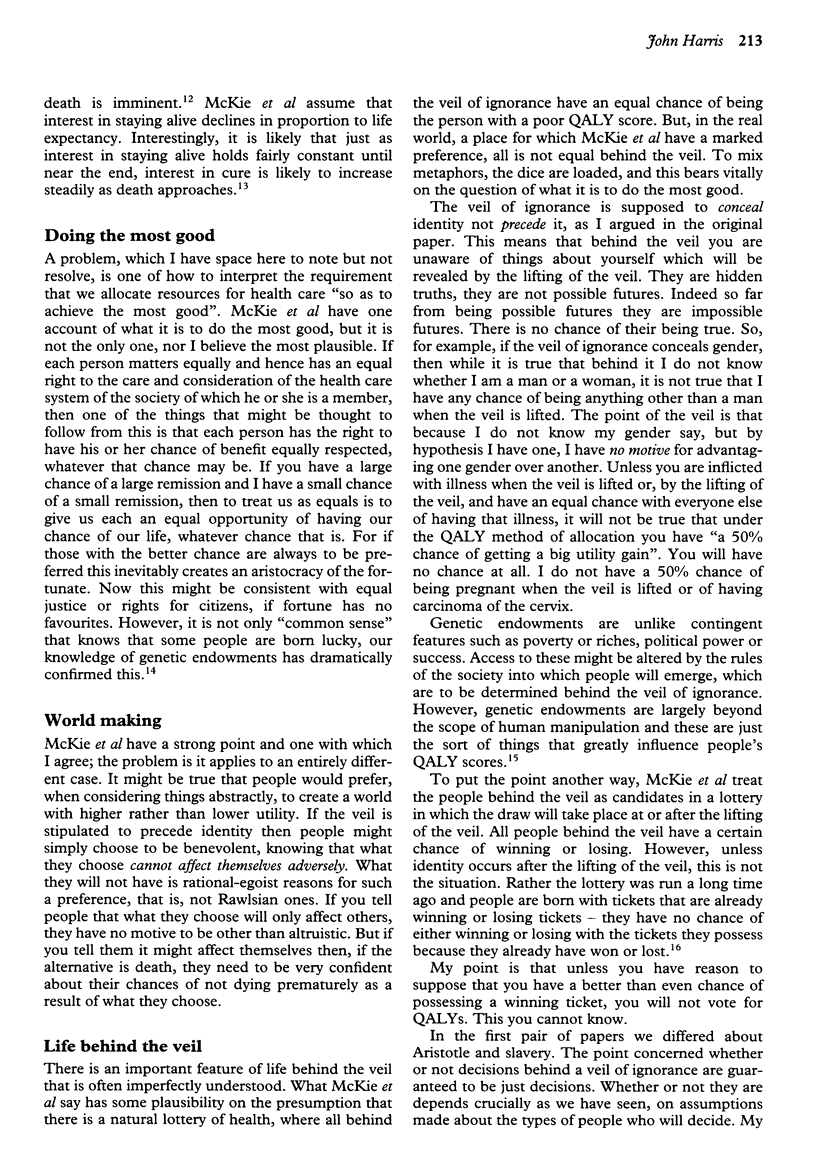
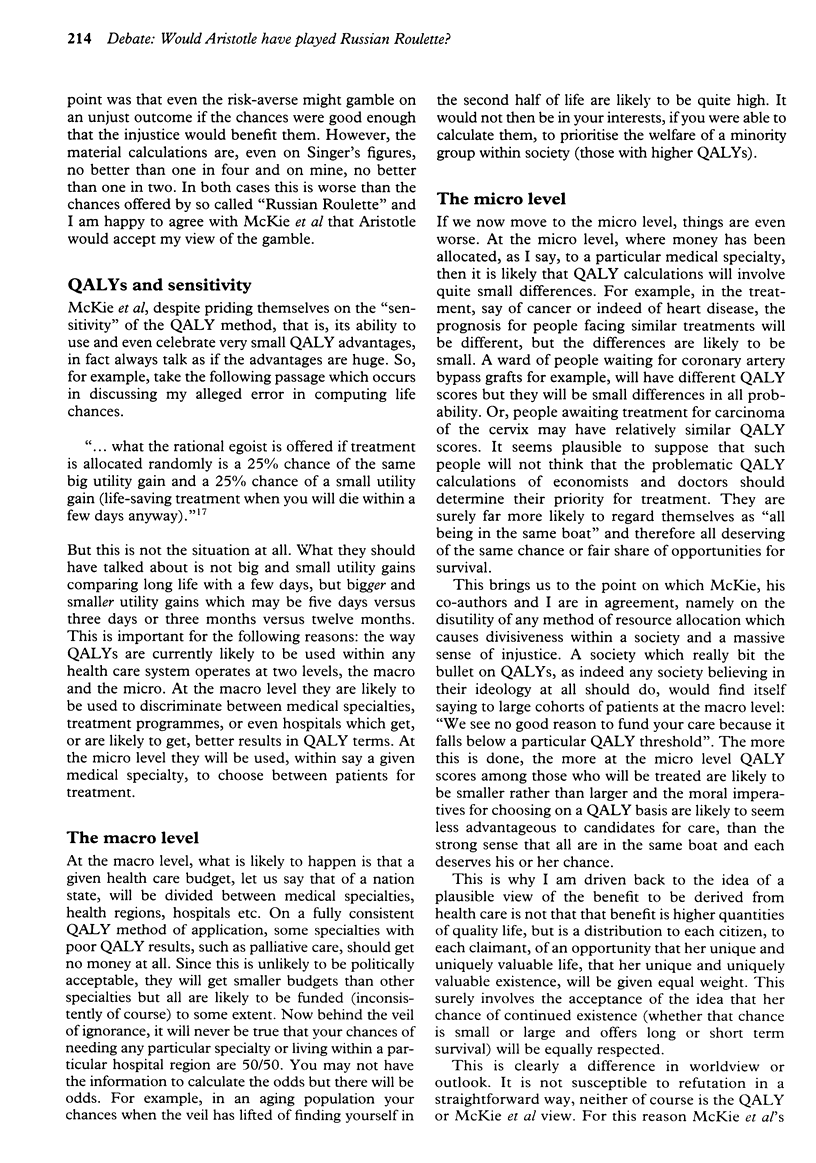
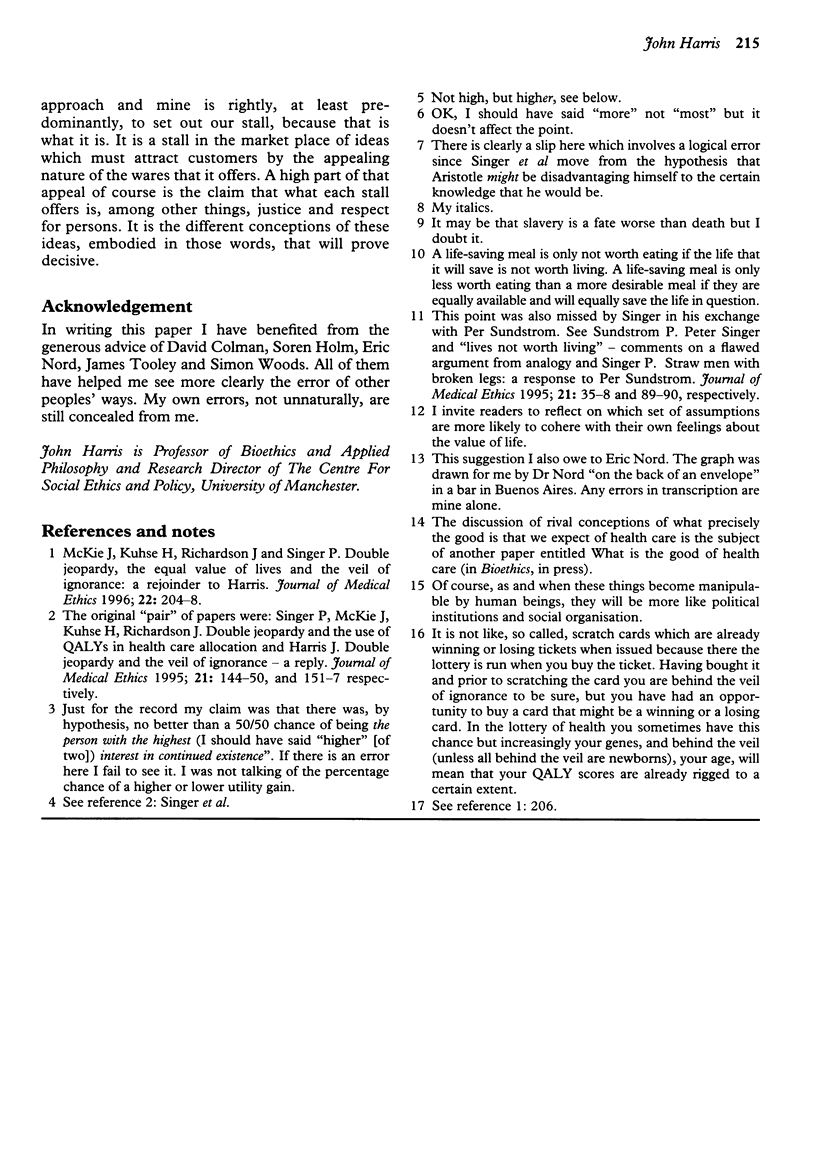
Selected References
These references are in PubMed. This may not be the complete list of references from this article.
- Harris J. Double jeopardy and the veil of ignorance--a reply. J Med Ethics. 1995 Jun;21(3):151–157. doi: 10.1136/jme.21.3.151. [DOI] [PMC free article] [PubMed] [Google Scholar]
- McKie J., Kuhse H., Richardson J., Singer P. Double jeopardy, the equal value of lives and the veil of ignorance: a rejoinder to Harris. J Med Ethics. 1996 Aug;22(4):204–208. doi: 10.1136/jme.22.4.204. [DOI] [PMC free article] [PubMed] [Google Scholar]
- Singer P. Straw men with broken legs: a response to Per Sundström. J Med Ethics. 1995 Apr;21(2):89–90. doi: 10.1136/jme.21.2.89. [DOI] [PMC free article] [PubMed] [Google Scholar]


